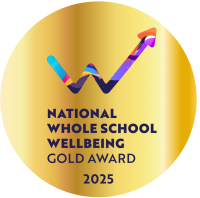Reading and Phonics

“Reading is at the heart of our school”
Our pupils make an excellent start to their reading in the early years. Reading is a core skill which is key to pupils’ learning in all subjects. Our children are encouraged to read widely in order to gain skills which can be applied across the curriculum. Due to the wide range of literature which is provided in school and the emphasis placed on it, a love of reading is developed.
Reading Books
Our children access a wide variety of books in school. Each child takes home a reading book which will match your child’s phonic or independent reading ability. There are opportunities for children to change these books (KS2) during the week once they have been read at home.
For the early readers Bug Club Phonics is the main spine of our scheme. The books offer a range of genre, such as plays, stories and poetry as well as non-fiction texts, such as recounts, information and instructions. These books are matched to the phonic ability of the children.
Library books
We have a collection of books in each classroom. These contain both fiction and non-fiction books. We also have a well-resourced central library area in the hall which houses a range of picture, fiction and reference books. Pupils are able to access these books and it is a space often used by pupils wanting to read for pleasure at break times.
Guided Reading
Guided reading is an important element of enhancing reading throughout the school. This is conducted on a regular basis within small groups. One of the groups will work with the class teacher and another group will work with the teaching assistant appointed to their class. Within their group, children work on a book which is pitched just above their current independent reading level. It is during these sessions that the class teacher will explicitly teach and develop reading skills; word-recognition and comprehension. Groups working independently will have a particular task based on aspects of reading e.g. summarising the plot, illustrating, generating questions, and finding the definition of unfamiliar words. In addition to this the children may be working collaboratively to discuss the current reading taking place or may be involved in reading a wider genre of books, stories and poems.
Phonics
At Hawes Primary school, we also use Pearson’s Bug Club e-book programme as our reading scheme from Class 1 onwards.
Reading consists of two dimensions: word reading and comprehension.
Quality teaching of early reading is essential for children to develop competence, fluency and automaticity when decoding and recognising familiar and unfamiliar words. Phonics is taught systematically in EYFS and key stage 1 classes. We use Pearson’s Phonics Bug; a systematic synthetic phonics programme designed to teach children to read and write. Children learn the 42 letter sounds of the English language through a multi-sensory approach. They are then taken through the phases of blending and segmenting words to develop reading and writing skills.
There is an expectation that all children will be fluent readers having secured word recognition skills by the end of key stage one. We adopt a determined approach to teaching phonics and reading to ensure that all children have the fluency and automaticity required to access all reading material.











